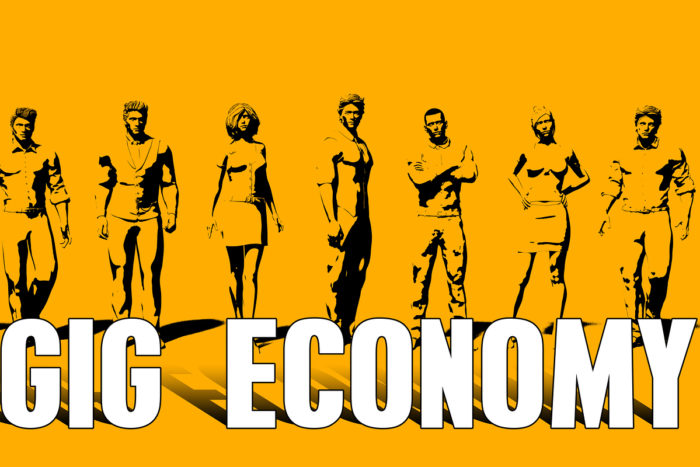Amna Nawaz: Well, the gig economy has opened up a lot of new opportunities for people to work temporary positions for platforms like Uber, Lyft, and TaskRabbit. In tonight's Brief But Spectacular, Terrence Davenport explains why the gig economy doesn't work in his hometown of Dumas, Arkansas. Davenport has worked as a social entrepreneur, coaching low-income people how to participate in the digital economy.
Terrence Davenport: So, in 2012, my brother was murdered. And there were a lot of questions around what happened to him. It was called a suicide. And we found Taser marks on his body. I couldn't get any traction with the police. I was told that I was, I was putting myself in a dangerous situation by raising the questions that I was raising. And so I decided that the way I would recompense my brother's death is by giving back to the folks that live in this town and making sure that other young men had opportunities that my brother didn't have. Dumas is a small rural town in the Mississippi Delta. African-American population is about 65 percent. One-third of the population here is below the poverty line. I went to college at the University of Arkansas at Fayetteville. My pastor one day said that he needed a Web site done. And so I decided to teach myself. There are not a lot of, you know, employers coming here to employ folks, mostly because of the low skill levels. I was thinking, it would really be interesting to use the skills that I have to teach folks how to earn income, whether it's Web design skills or any other type of digital skill.
Our goal was to give people skills that they can use on digital platforms, like Upwork.com, Freelancer.com. We were dealing with not only occupational skills, but low digital skills, which is really surprising in a digital age. I had students that didn't know what it meant to right-click, didn't know what a URL was. On most of the popular platforms, I took a look at the top 100 earners.

There wasn't a single African-American in those top 100 earners. And that kind of raised a question about the feasibility for domestic African-Americans to actually earn a living on these platforms. I think, as a nation, we have to take care of our own people. And that's what I see in the gig economy. I see a lack of concern for the well-being of others. I see decisions being made based on the dollar. The gig economy doesn't work for people that live in the area that I live in. If you live in a big city, you can get on TaskRabbit and go do a job. You can sign up on Uber and make some money. When we're talking about online work platforms that require you to use real digital skills, then these jobs become globalized. It actually works against some of the dreams of the people that I'm surrounded by. My name is Terrence Davenport. This is my Brief But Spectacular take on life and work in rural Arkansas.












